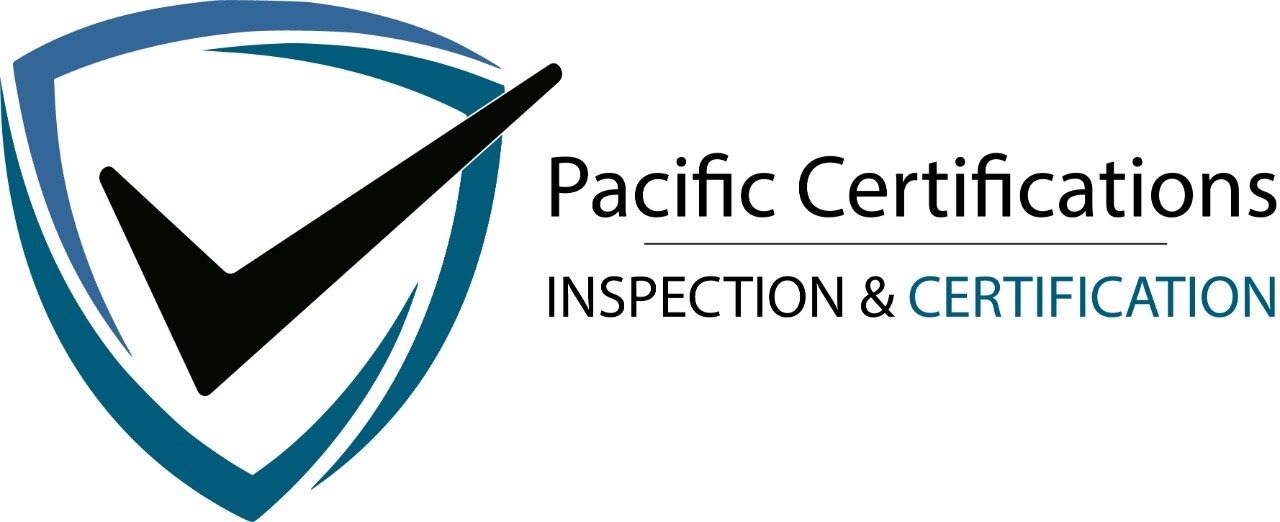ISO Certifications for Construction Industry, Requirements and Benefits

Introduction
The construction industry operates in a highly risk-intensive, regulation-driven, and performance-critical environment where quality of execution, worker safety, environmental protection, and compliance with statutory requirements directly affect project outcomes, financial performance, and public safety. Construction businesses are involved in a wide range of activities including residential and commercial building construction, infrastructure projects, industrial facilities, civil works, renovations, and specialized trade services.
With increasing project complexity, tighter timelines, stricter building codes, heightened focus on worker safety, and growing environmental and ESG expectations, construction companies are under constant pressure to demonstrate structured governance. Quality failures, safety incidents, environmental violations, or weak documentation can result in project delays, cost overruns, penalties, contract termination, or reputational damage. ISO certifications provide internationally recognized management system frameworks that help construction organizations standardize operations, manage risks, ensure compliance, and build confidence with clients, regulators, developers, and financiers.
According to GlobalData’s Construction Outlook, the global construction market is expected to exceed USD 14 trillion by 2030, driven by smart cities and sustainable housing initiatives.
Strong foundations aren’t built with concrete alone — they’re built with systems that guarantee quality, safety, and trust — Pacific Certifications
For assistance with obtaining ISO certifications and ensuring compliance through audits, you can contact us at [email protected]
Quick Summary
ISO certifications such as ISO 9001, ISO 14001, ISO 45001 , ISO 50001, ISO/IEC 27001, and ISO 22301 help construction companies establish strong management systems for quality, safety, environmental sustainability, and operational resilience. They ensure compliance with international standards, boost efficiency, and build trust with clients, investors, and regulators.
Key ISO Standards for the Construction Industry
Below are the key ISO standards applicable to construction industry:
ISO 9001:2015 - Quality Management System (QMS)
ISO 9001 helps construction organizations standardize project planning, design coordination, procurement, execution, inspection, testing, handover, and defect rectification. It supports consistent workmanship, controlled change management, clear documentation, and continual improvement across multiple projects and sites.
ISO 14001:2015 - Environmental Management System (EMS)
Construction activities significantly impact the environment through waste generation, dust, noise, emissions, water usage, and land disturbance. ISO 14001 supports systematic control of environmental aspects, compliance with environmental permits, and implementation of sustainable construction practices increasingly required by regulators and clients.
ISO 45001:2018 - Occupational Health and Safety Management System (OHSMS)
Construction is one of the highest-risk industries, involving working at heights, heavy machinery, lifting operations, electrical works, confined spaces, and multiple subcontractors. ISO 45001 provides a structured framework to identify hazards, assess risks, ensure legal compliance, train workers, and prevent accidents, injuries, and fatalities.
ISO 50001:2018 - Energy Management System (EnMS)
For construction organizations operating plants, batching facilities, equipment fleets, and large sites, ISO 50001 helps monitor and optimize energy consumption, reduce fuel and electricity costs, and support sustainability objectives.
ISO 41001:2018 - Facility Management System
This standard is relevant for facilities management companies in the construction industry. It helps improve the management of facilities, including maintenance, safety, and efficiency.
ISO 27001: Information Security Management Systems (ISMS)
Construction companies manage sensitive information such as drawings, BIM models, contracts, financial data, client records, and project schedules. ISO/IEC 27001 ensures confidentiality, integrity, and availability of information, especially when digital platforms, cloud systems, and shared project environments are used.
ISO 22301:2019 – Business Continuity Management Systems
Construction operations can be disrupted by supply chain failures, labor shortages, equipment breakdowns, natural events, or regulatory actions. ISO 22301 ensures that critical construction activities can continue or recover quickly, protecting project timelines and contractual commitments.
ISO 10006:2017 - Quality Management for Projects
This standard provides guidance on quality management for project management processes. It can be valuable for construction companies to ensure that projects are managed effectively.
What are the requirements for ISO Certifications for Construction Industry?
Below are the general requirements for construction companies pursuing ISO certification:
Policy & Objectives: Define clear quality, safety, and sustainability goals aligned with the company’s strategic vision.
Process Documentation: Develop documented procedures for design, procurement, construction, and inspection.
Risk Assessment: Identify and manage risks related to safety, supply chains, environmental impact, and delays.
Training & Competence: Train workers, engineers, and supervisors on quality and safety practices.
Site Safety Management: Implement strict controls for PPE, machinery operation, and emergency procedures.
Environmental Monitoring: Track waste, noise, emissions, and water usage during projects.
Supplier & Contractor Evaluation: Approve and monitor subcontractors and suppliers for compliance and performance.
Internal Audits: Conduct audits to ensure ongoing compliance with ISO standards.
Corrective & Preventive Actions: Investigate nonconformities and apply improvements to avoid recurrence.
Management Review: Review audit outcomes, safety records, and customer satisfaction periodically.
Legal & Regulatory Compliance: Follow construction laws, environmental regulations, and labor codes.
Performance Evaluation: Use KPIs for cost control, project delivery, and client satisfaction.
Continuous Improvement: Monitor processes and adopt new technologies to enhance productivity and safety.
Standard specific requirements:
ISO 9001:2015 – Quality Management Systems Requirements
Document project planning, execution, inspection, and handover processes
Define quality objectives aligned with client specifications and regulatory requirements
Control drawings, method statements, inspection records, and change requests
Monitor non-conformities, defects, and rework
Manage subcontractor and supplier performance
Conduct internal audits and management reviews
ISO 45001:2018 – Occupational Health & Safety Requirements
Identify hazards related to site activities, equipment, and work methods
Assess OH&S risks and implement engineering and administrative controls
Ensure compliance with construction safety laws and permits
Provide training, PPE, toolbox talks, and emergency preparedness
Establish incident reporting and investigation procedures
Monitor safety performance and continual improvement
ISO 14001:2015 – Environmental Management Requirements
Identify environmental aspects of construction activities
Control waste, dust, noise, emissions, and water usage
Manage hazardous materials and spill prevention
Ensure compliance with environmental regulations and permits
Monitor environmental performance and improvement actions
ISO/IEC 27001:2022 – Information Security Requirements
Identify and classify project and business information assets
Conduct information security risk assessments
Control access to digital drawings, BIM systems, and records
Secure document management and communication platforms
Manage third-party access to sensitive information
Monitor and improve ISMS effectiveness
ISO 22301:2019 – Business Continuity Requirements
Identify critical construction operations and dependencies
Conduct business impact analysis (BIA)
Develop continuity and recovery plans
Plan for supply chain, labor, and equipment disruptions
Test and review continuity arrangements
Tip: Start with ISO 9001, 14001, and 45001, these form the foundation for quality, environmental care, and worker safety. Once mature, add ISO 50001 and 27001 to strengthen efficiency and data security.
For assistance in evaluating your construction operations against ISO requirements, contact [email protected].
What are the benefits of ISO Certifications for the Construction Industry?
Below are the key benefits of ISO certification for construction companies:
Quality & Client Satisfaction: ISO 9001 ensures consistency in project delivery and workmanship.
Worker Safety: ISO 45001 reduces accidents and builds a strong safety culture across sites.
Environmental Responsibility: ISO 14001 helps minimize environmental impact through waste and pollution control.
Efficiency: ISO 50001 reduces fuel and electricity costs in operations and maintenance.
Resilience: ISO 22301 supports business continuity during supply chain or weather disruptions.
Data Security & Confidentiality: ISO 27001 safeguards blueprints, contracts, and client data.
Risk Reduction: ISO 31000 provides structured risk management throughout project lifecycles.
Regulatory & Tender Compliance: Many public and private tenders require ISO-certified contractors.
Cost Savings: Improved efficiency and reduced rework lower project costs.
Global Credibility: Certification demonstrates adherence to internationally recognized standards, boosting brand trust.
The construction industry is undergoing a major digital and environmental transformation. McKinsey’s Global Construction Report (2024) predicts that over 70% of large contractors will integrate ISO-certified management systems by 2030 to meet ESG and safety requirements.
The shift toward green construction and renewable energy projects has made ISO 14001 and ISO 50001 essential for sustainability reporting. Meanwhile, ISO 45001-certified companies report a 40% reduction in site incidents and better compliance with government safety audits.
Furthermore, ISO 27001 and ISO 22301 adoption is rising with the use of digital project management tools and remote collaboration platforms, ensuring data protection and business continuity in a connected construction ecosystem.
How Pacific Certifications Can Help?
Pacific Certifications is accredited by ABIS, we provide independent audit and certification services for construction and infrastructure firms, our focus is on impartial, accredited certification recognized globally.
Pacific Certifications can help by:
Conducting audits for ISO 9001, 14001, 45001, 50001, 27001, and 22301.
Issuing accredited ISO certificates accepted in domestic and international construction contracts.
Supporting integrated management system certification across multiple sites and operations.
Contact Us
If you need more support with your business in construction industry, contact us at +91-8595603096 or [email protected].
Author: Ashish

